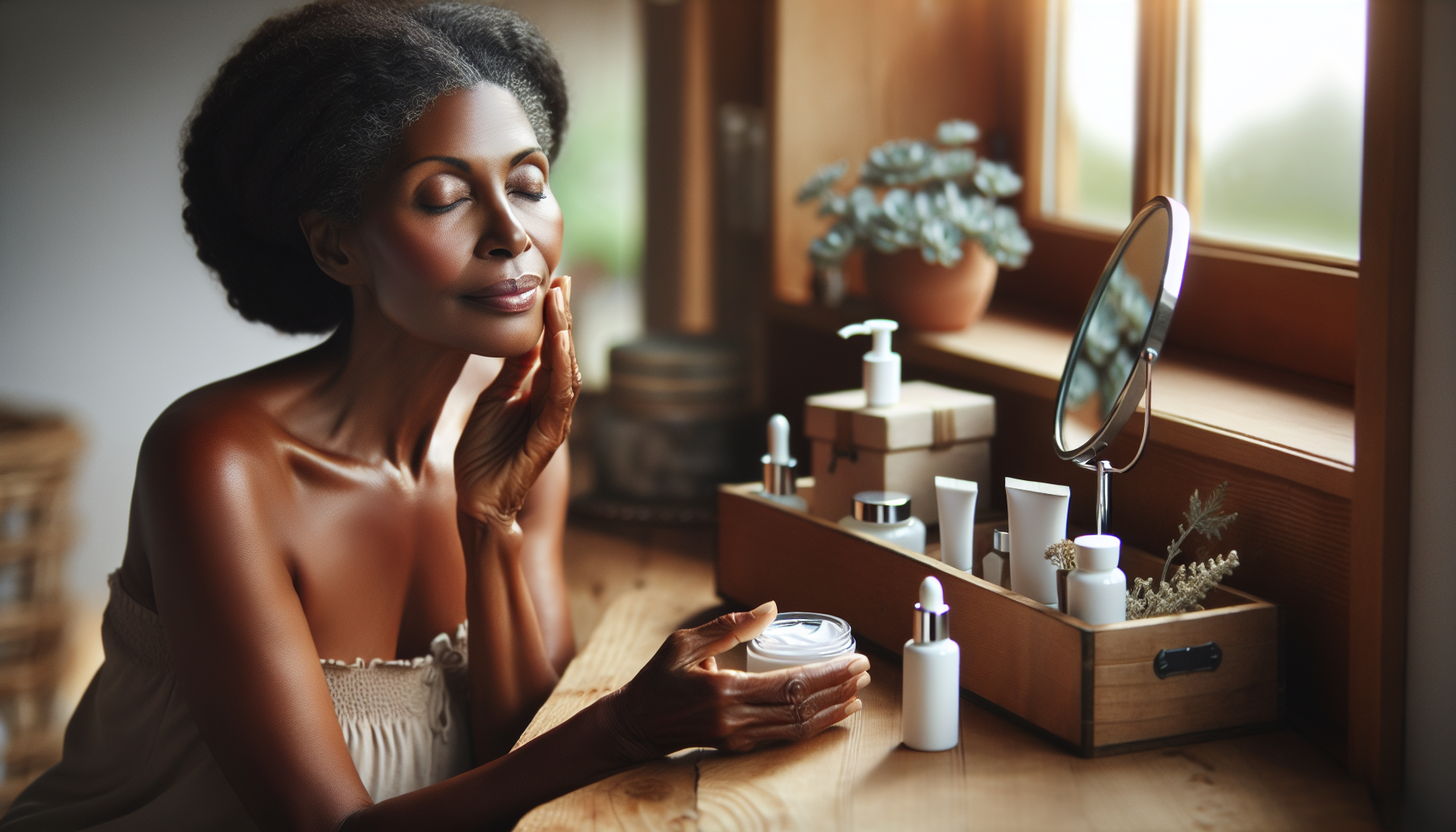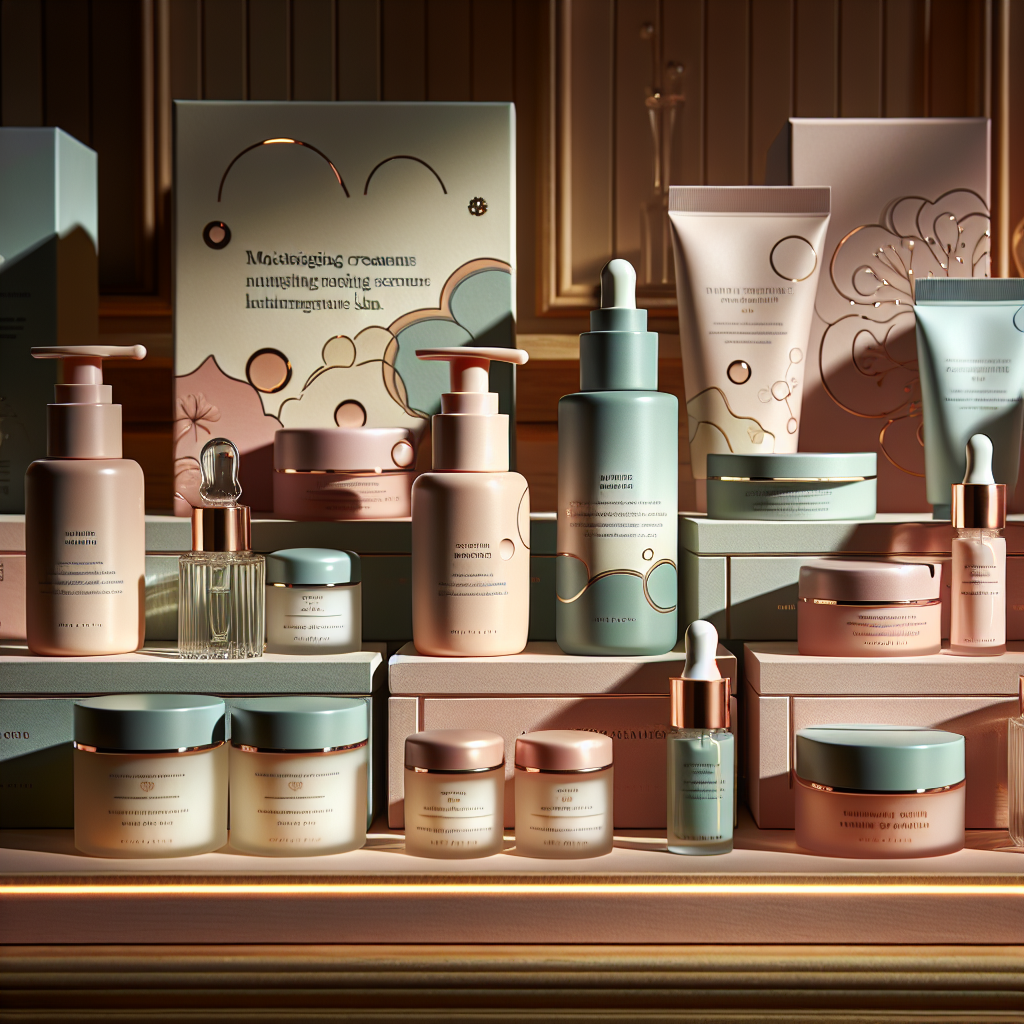Menopause is a significant milestone in a woman’s life, characterized by the end of menstrual cycles and a host of physiological changes. Among these, the skin undergoes notable transformations due to hormonal fluctuations, which can affect its texture, elasticity, and overall appearance. It’s crucial for menopausal women to adapt their skin care routines to cater to these changes to maintain skin health and vitality. This comprehensive guide aims to empower women with the knowledge to navigate this transition with confidence, highlighting tailored skin care strategies and products that align with their evolving needs.
Understanding Menopausal Skin Changes
During menopause, estrogen levels decline, which can lead to a decrease in collagen production, resulting in thinner, less elastic skin. The skin’s ability to retain moisture diminishes, leading to dryness and an increased appearance of fine lines and wrinkles. Additionally, menopausal women may experience increased skin sensitivity and a higher propensity for inflammation. These changes underscore the importance of reassessing and adjusting skin care routines.
Hydration and Moisturization
The cornerstone of menopausal skin care is hydration. With the skin’s natural moisture barrier compromised, it’s essential to invest in high-quality moisturizers that are specifically formulated for mature skin. Look for ingredients like hyaluronic acid, which can hold up to 1,000 times its weight in water, and ceramides, which help to restore the skin’s barrier and prevent moisture loss.
Incorporating products that contain natural oils can also be beneficial. These oils not only moisturize the skin but also provide essential nutrients. For a deeper understanding of the best natural oils for skin care, explore this resource on Identifying the Best Natural Oils for Skin Care.
Gentle Cleansing
As the skin becomes more delicate during menopause, harsh cleansing can exacerbate dryness and sensitivity. Opt for gentle, hydrating cleansers that remove impurities without stripping the skin of its natural oils. Avoid products with high alcohol content or strong fragrances, as these can be irritating.
Sun Protection
Sun protection remains a critical component of skin care at every stage of life. For menopausal women, the thinning of the skin makes it even more susceptible to damage from UV rays. A broad-spectrum sunscreen with an SPF of 30 or higher should be a non-negotiable part of your daily routine. Additionally, consider integrating SPF into your makeup routine for an extra layer of defense.
Targeted Treatments
As the skin’s needs change, so should the treatments. Products containing peptides can support skin rejuvenation by promoting collagen production. Learn more about the efficacy of these compounds in "The Role of Peptides in Skin Care and Rejuvenation". For targeted treatment of hyperpigmentation, which can become more pronounced during menopause, look for products with vitamin C or retinoids, but be sure to introduce them gradually to avoid irritation.
To support these adjustments, consider visiting resources that delve into the best practices for menopausal skin care, such as the American Academy of Dermatology’s guidelines or The International Dermal Institute’s recommendations.
Lifestyle Considerations
Skin health is not solely dependent on topical treatments; lifestyle factors play a significant role as well. A balanced diet rich in anti-inflammatory foods can support skin health from the inside out. Staying hydrated, reducing stress, and getting adequate sleep are also essential for maintaining healthy skin during menopause.
Professional Guidance
Consulting a dermatologist or a skin care professional can provide personalized advice tailored to your skin’s unique needs. They can recommend treatments such as hormone replacement therapy (HRT), which may offer skin benefits for some women, or non-invasive procedures like LED light therapy, detailed in "Advantages of LED Light Therapy for Skin".
Conclusion
Menopause is a time of change, and with it comes the need to reassess and adapt your skin care routine. By focusing on hydration, gentle cleansing, sun protection, and targeted treatments, you can address the specific challenges that menopausal skin presents. Embrace this new chapter by taking the opportunity to nurture your skin with the care it deserves.
Remember, the journey through menopause is deeply personal, and so is the approach to skin care. Stay informed, experiment with recommended products, and don’t hesitate to seek professional advice to find what works best for you. Your skin is a reflection of your health and well-being, and by giving it the attention it needs during menopause, you can maintain its radiance for years to come.
For more detailed information on maintaining skin health, visit Skin Health at Avix Health and continue to explore our numerous resources designed to empower you on your wellness journey.



